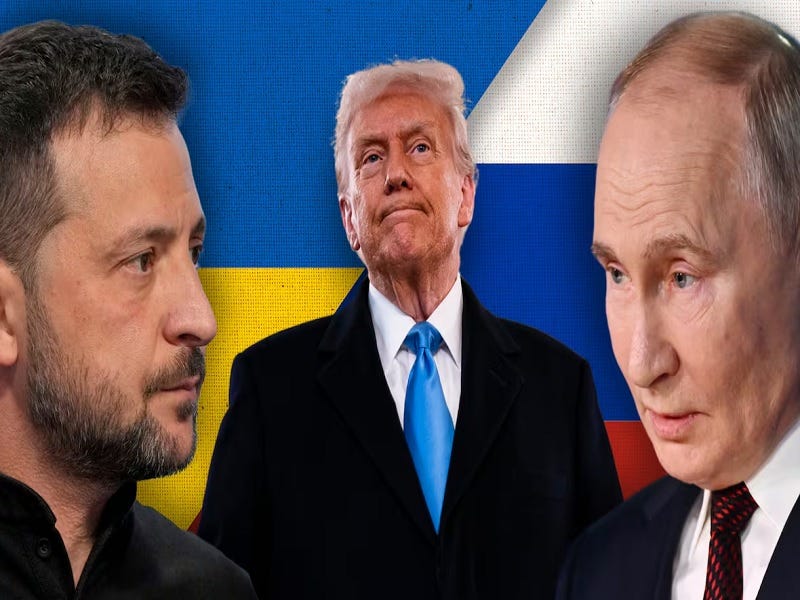The US could move its nascent “New Détente” with Russia further along by either forcing the G7 and UNGA Resolution sponsors to change their language about “Russian aggression” or refusing to attach its name to their respective documents on the third anniversary of the special operation if they don’t.
The Financial Times and Reuters reported that the US Government (USG) respectively refuses to endorse a joint statement from the G7 and a proposed UNGA Resolution that include the phrase “Russian aggression”, instead allegedly proposing more neutral language like the “Ukrainian Conflict”. That would be extremely significant if true since the US wields more political influence across the world than any other country and can therefore herald a sea change in official global opinion by shifting its rhetoric.
These reports might very well be true considering how rapidly the nascent Russian-US “New Détente” is progressing. Their leaders’ first conversation since Trump’s return to office was quickly followed by their representatives meeting in Riyadh to discuss the restoration of bilateral ties and a political resolution to the NATO-Russian proxy war in Ukraine. Putin and Trump also plan to meet in the coming weeks. It thus wouldn’t be surprising if the US was softening its language on the conflict as ties with Russia improve.
After all, they pledged to address the root issues at the core of their proxy war, and the language that Trump used in his social media post lambasting Zelensky last week suggests that he truly understands that attributing everything to so-called “Russian aggression” is grossly inaccurate. To remind the reader, he accused Zelensky of “talk[ing] the United States of America into spending $350 Billion Dollars, to go into a War that couldn’t be won, that never had to start”, which confirms the aforesaid observation.
For these reasons, it would contradict the USG’s evolving perception of this proxy war as personally pioneered by Trump for his officials to endorse anything that lends false credence to the prior administration’s discredited portrayal of this conflict, hence why the latest reports might be true. In that case, some other countries might follow its lead in order to not get on Trump’s bad side, and this could widen the transatlantic rift between the US and the warmongering EU if the latter clings to their rhetoric.
For example, Japan might support the US’ reported position towards the G7’s joint statement to ensure backing for its regional plans vis-à-vis China, while a slew of Global South states might abstain from the UNGA vote in order for Trump not to lump them together with the Europeans with all that might entail. The first could split the G7, perhaps irreparably if the Europeans (including culturally similar Canadians) don’t relent, while the second could reinforce the perception of European isolation on the world stage.
Of course, all of this is dependent on the USG declining to endorse any documents that push the false claim of “Russian aggression” being the source of this conflict, the decision of which it’ll have to make in a few days’ time. If the USG either forces the G7 and UNGA Resolution sponsors to change their documents’ language or doesn’t attach its name to them if they refuse, then it would move the nascent Russian-US “New Détente” further along and speed up the timeframe for the Putin-Trump Summit.





Illogical of course for Trump to blame Zelensky when Zelensky was simply a US Deep State puppet following orders. However as a rhetorical “off ramp” for the war it makes sense to try to hang all blame on Zelensky.
Trump is clearly trying to shift the ground toward reality, a much needed process to become a major player in the peace negotiations. However, blaming the “moderately successful comedian” for milking the U.S. to the tune of $350 billion without any repayment guarantees and herding America into an unwinnable war is slightly surrealistic. This act would exceed the capacities of even a successful comedian considering that U.S. decision makers were sitting on top of the largest military/political machinery of the planet. On the one hand there was a major KGB style suppression of any intellectual opposition inside the U.S. from early on. On the other hand I can smell a thousand rotting dogs in the back of the rose gardens of America’s master manipulators.